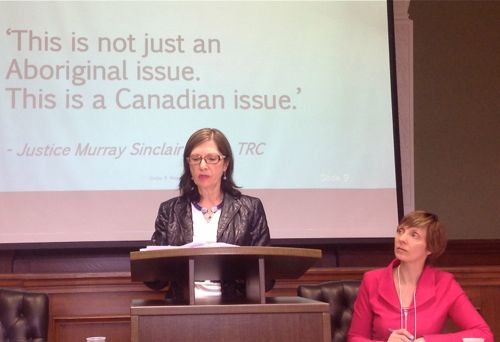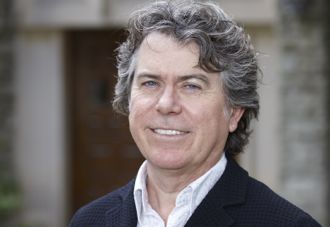Canada’s Truth and Reconciliation Commission evaluated
May 13, 2014
 Western Law’s Moot Court Room was the focus of intense discussion at a conference on the mandate and achievements of Canada’s Truth and Reconciliation Commission.
Western Law’s Moot Court Room was the focus of intense discussion at a conference on the mandate and achievements of Canada’s Truth and Reconciliation Commission.
Western University’s Centre for Transitional Justice and Post-Conflict Reconstruction hosted the one-day conference at the law school on May 8 on the theme of "Evaluating the Impact of the Truth and Reconciliation Commission of Canada". The Commission, which is nearing the end of its mandate, was established to address the legacy of Indian Residential Schools.
The conference took a scholarly snapshot of the Commission’s impact across a number of different aspects of the Canadian landscape. These include the collective understanding of the legacy of colonialism; the role of the churches; the evolution of the term "reconciliation" in legal matters; and other important elements.
Western Law was well-represented among the voices at the conference. Professor Michael Coyle (pictured right) presented the paper “Rethinking the Transformative Potential of the Truth and Reconciliation Commission: A Skeptic’s Perspective” that considered whether the Commission can actually promote meaningful reconciliation between indigenous and non-indigenous people. 
Western Law Ph.D. student Shirley Wales (pictured above with Valerie Oosterveld) presented a paper comparing the Canadian and South African experiences with truth and reconciliation commissions. She looked specifically at student-on-student violence in Indian Residential Schools and how this was factored into the design of Canada’s Commission, and how this was different from the South African approach.
Professors Valerie Oosterveld and Michael Lynk also chaired panels at the conference. Professor Oosterveld is the current Director of Western’s Centre for Transitional Justice and Post-Conflict Reconstruction.
The conference was opened with a smudge ceremony by indigenous elders Dan and Mary Lou Smoke, and included speakers such as Professor Jennifer Llewellyn from Dalhousie Law and Kim Stanton of Stanton Legal in Toronto.






